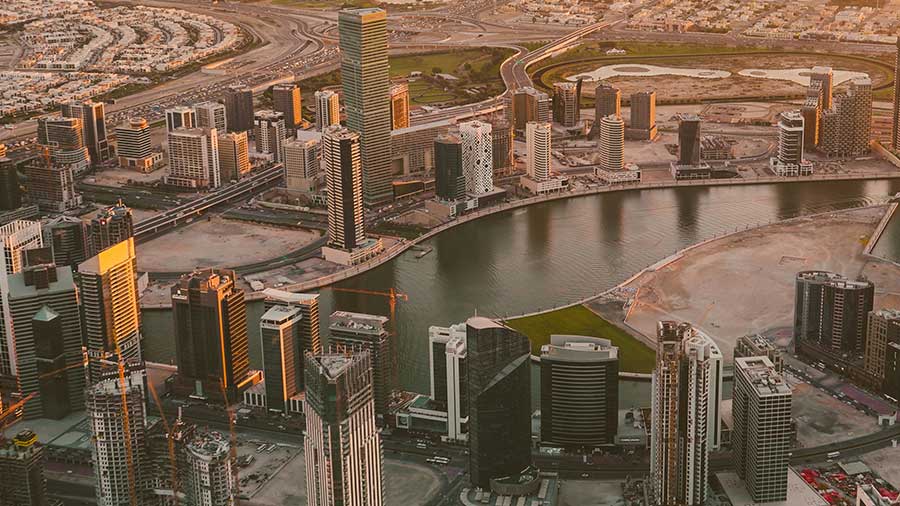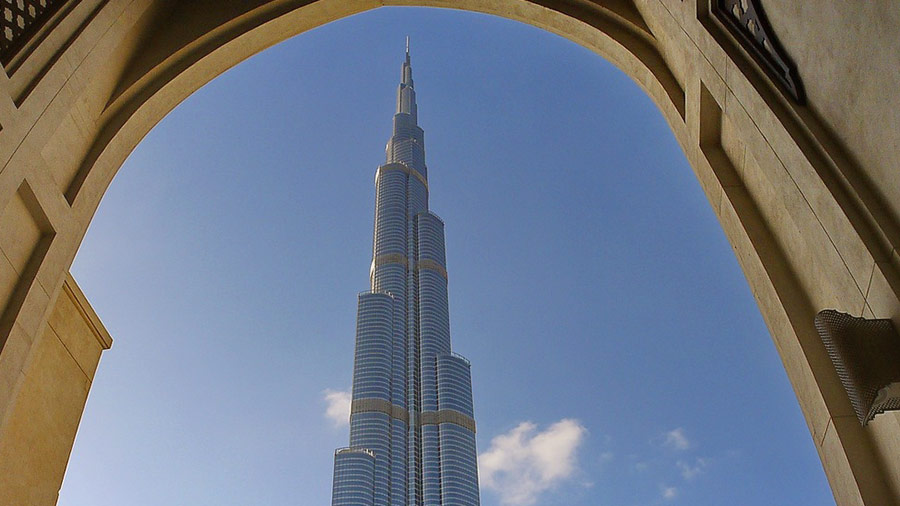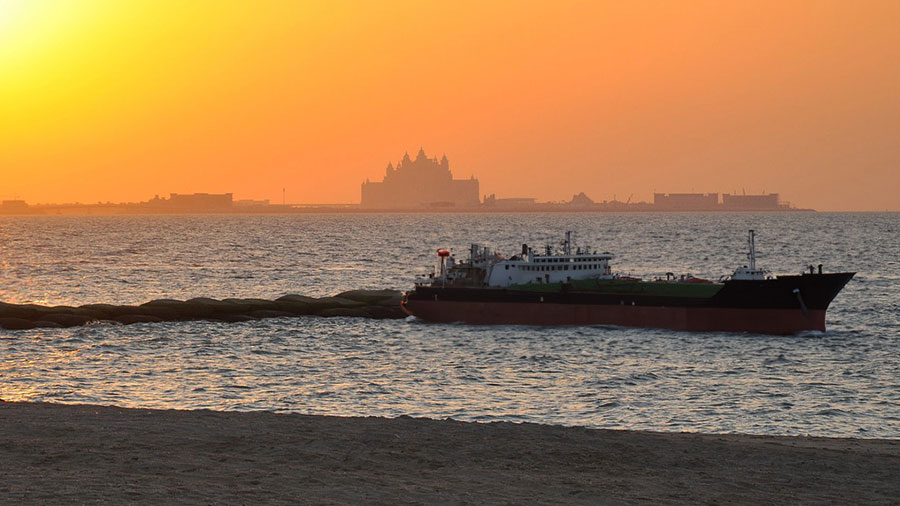Fueled by strategic investments, a strong focus on innovation, and a diverse range of industries beyond oil, the UAE is recognized as a regional powerhouse for trade, tourism, finance, and logistics.
This article provides a comprehensive examination of the UAE’s Free Trade Agreement framework and its strategic role in advancing national economic objectives.
Historical context of UAE's trade agreements
The UAE's journey toward becoming a regional trade hub began with foundational steps in the early 1970s, notably with the establishment of Port Rashid in Dubai on October 5, 1972. This strategic port set the stage for the UAE's burgeoning maritime and trade industries, inviting global businesses and investors to leverage the Emirates' logistical strengths. Alongside these infrastructure investments, the UAE adopted forward-looking trade policies that encouraged international businesses to engage with the Emirates, gradually transforming it into a competitive, open-market economy.
An important milestone came in 1994 when the UAE became a contracting party to the General Agreement on Tariffs and Trade (GATT), marking its commitment to the global trade framework. GATT membership offered the UAE an opportunity to deepen its involvement in international trade while reducing tariffs on its exports. This move was instrumental in aligning the UAE’s trade policies with international standards, fostering a business environment conducive to free-market principles.
The UAE’s 1996 accession to the WTO further strengthened its commitment to open trade, underscoring its intent to be a proactive participant in the global economy. WTO membership brought numerous benefits: from reducing tariff barriers to protecting the UAE’s local industries from practices such as product dumping. The WTO framework also encouraged the UAE to modernize its trade-related legislation, enhancing protections around intellectual property rights and conforming to high international standards for product safety and quality.
In line with its focus on technological advancement, the UAE also became a signatory to the WTO’s Information Technology Agreement, a significant treaty involving 78 countries that collectively account for 97 percent of global trade in IT products. Through this agreement, the UAE committed to eliminating tariffs on a wide array of IT goods, encouraging the flow of tech products and innovation within its borders. With a global IT market value of over US$1.3 trillion annually, this treaty bolstered the UAE’s ambition to become a technology-driven economy, attracting investment from international tech firms and advancing the Emirates as a digital innovation hub in the region.
These early initiatives and memberships in global organizations laid the groundwork for the UAE’s contemporary Free Trade Agreement (FTA) strategy, aimed at expanding its market access, fostering economic diversification, and enhancing the protection of local industries and intellectual property.
Current Free Trade Agreements framework
As a member of the Gulf Cooperation Council (GCC), the UAE collaborates with other GCC nations, notably Saudi Arabia, Kuwait, Bahrain, and Oman, to establish unified trade strategies and policies. This partnership enables a shared customs union and a common market, laying the groundwork for increased trade volumes and seamless movement of goods and services across GCC states.
Within the GCC framework, the UAE has extended its FTA reach through agreements with multiple nations, including prominent pacts with New Zealand, Singapore, and the European Free Trade Association (EFTA), covering Iceland, Liechtenstein, Norway, and Switzerland. These agreements aim to reduce trade barriers, improve market access, and enhance export competitiveness for Emirati goods and services. In addition, the UAE, as a part of the Greater Arab Free Trade Area (GAFTA), enjoys free trade benefits with several Arab nations, enabling tariff-free access to markets in countries like Egypt, Jordan, Morocco, and Tunisia.
The GCC also continues negotiations with other major trade blocs and nations, including the European Union, China, Japan, and the Mercosur countries (Argentina, Brazil, Paraguay, and Uruguay). These ongoing discussions reflect the UAE's proactive approach in diversifying its trade portfolio and securing advantageous positions in emerging markets.
The UAE’s FTAs cover a wide array of sectors, focusing on vital areas such as goods, services, and investment, and often include provisions on intellectual property rights and dispute resolution mechanisms. This comprehensive scope aims to bolster the UAE's competitive edge and encourage foreign investments across key industries, from manufacturing to high-tech services.
GCC’s FTA framework are as follows:
- Free Trade Agreement between the Gulf Cooperation Council (GCC) and the European Free Trade Association (EFTA) States (2009)
- GCC-Singapore Free Trade Agreement (GSFTA) (2008)
- GCC-South Korea (FTA) (2023)
- GCC-New Zealand FTA (2009)
- The Arab Framework Agreement of Liberalization of Trade in Services Among Arab Countries
- Agreement on the Establishment of Free Trade Area between the UAE Government and the Sudanese Government
- Agreement on the Establishment of Free Trade Area between the UAE Government and the Iraqi Government
- Agreement on the Establishment of Free Trade Area between the UAE Government and the Lebanese Government
- Agreement on the Establishment of Free Trade Area between the UAE Government and the Moroccan Government
- Agreement on the Malaysian Committee for Trade Cooperation
- Agreement to Facilitate and Develop Trade Among Arab Countries (by the Arab League)
- The Declaration of Greater Arab Free Trade Area (GAFTA) (In accordance with the Agreement for Facilitation and Promotion of Trade among Member Countries – the Arab League)
- Greater Arab Free Trade Area (GAFTA) Agreement
- Agreement on Trade in Services among the Arab Countries
Recent developments
In recent years, the UAE has prioritized its trade expansion through the Comprehensive Economic Partnership Agreements (CEPAs), entering into a strategic phase of bilateral agreements. Since 2021, CEPAs have become a cornerstone of the UAE’s trade policy, underscoring its aim to foster stronger, more diversified economic ties.
Building on this success, as of January 2025, the UAE has six CEPAs in force, including:
| Country/Region | Status | Date |
| India | Agreements active | 01-May-22 |
| Israel | Agreements active | 01-Apr-23 |
| Indonesia | Agreements active | 01-Sep-23 |
| Turkey | Agreements active | 01-Sep-23 |
| Cambodia | Agreements active | 31-Jan-24 |
| Philippines | Negotiations concluded | Jan-24 |
| Ukraine | Agreements terms finalized | Apr-24 |
| South Korea | Agreements signed | May-24 |
| Georgia | Agreements active | Jun-24 |
| Morocco | Agreements terms finalized | Jul-24 |
| Chile | Agreements signed (expected to be active within 6 months) | Jul-24 |
| Mauritius | Agreements signed | Jul-24 |
| Australia | Agreements terms finalized | Sep-24 |
| Japan | Negotiations launched | Sep-24 |
| Serbia | Agreements signed | 05-Oct-24 |
| Jordan | Agreements signed | 06-Oct-24 |
| Vietnam | Agreements signed | 29-Oct-24 |
| Kenya | Agreements signed | 14-Jan-25 |
| New Zealand | Agreements signed | 14-Jan-25 |
| Malaysia | Agreements signed | 14-Jan-25 |
Additionally, the UAE and the United States maintain a Trade and Investment Framework Agreement (TIFA), focusing on intellectual property rights, transparency, and customs regulation. While a full FTA with the U.S. remains pending, the UAE’s role in the U.S.-GCC Framework Agreement and the U.S.-UAE Economic Policy Dialogue reflects strong bilateral trade relations and shared goals for economic reform and liberalization.
Economic impacts of FTAs
- FTAs, especially CEPAs, reduce tariffs and streamline customs, fostering a competitive trade environment.
- Significant increase in trade volumes with FTA partners, e.g., UAE-India CEPA boosted trade by offering preferential tariffs on 80 percent+ of traded goods.
- FTAs support UAE’s shift away from oil dependency, aligning with its vision for a diversified economy.
- CEPAs open markets in sectors like technology, services, and advanced manufacturing, reducing operational costs and stimulating sector-specific investments.
- FTAs provide a predictable business environment with transparent regulations, encouraging FDI in high-growth sectors such as technology, finance, and construction.
- Recent Trademark Law amendments strengthen protections for global brands, enhancing investor confidence and drawing FDI, especially in innovation-heavy industries.
- New IP frameworks safeguard foreign brands, appealing to sectors like digital services, healthcare, and fintech.
- FTAs offer a stable, rule-based framework for sustained economic growth, encouraging diversification and resilience through sector-focused, innovation-driven investment.
Regulatory framework supporting FTAs
As a founding member of the Gulf Cooperation Council (GCC), the UAE adheres to the GCC’s Common External Tariff system, which is key to its FTA strategy. This system includes four key ad valorem tariff rates:
- 0 percent for essential goods;
- A general rate of 5 percent;
- Elevated rates of 50 percent; and,
- 100 percent for products like alcohol and tobacco.
Nearly 97 percent of the UAE's tariff lines use ad valorem tariffs, with duties applied on the cost-insurance-freight (CIF) value of imports. This GCC framework is particularly significant because it creates uniformity in tariffs across member nations, allowing for a predictable and investor-friendly market in the region. As a result, the UAE’s FTAs benefit from an established customs protocol that simplifies trade and encourages economic integration, enhancing regional connectivity.
Streamlined customs
Customs procedures in the UAE have undergone continuous modernization to support FTA-driven trade activities.
These digital processes lower the costs associated with imports, allowing for a more efficient flow of goods and improved competitiveness for UAE-based companies operating in international markets. Additionally, the reduction of non-tariff barriers (NTBs) and the adoption of transparency initiatives have enhanced the UAE's standing as a secure trading hub, in alignment with its FTA commitments.
Trademark registration and protection Due to FTAs
The UAE's trade policies include stringent protections for intellectual property (IP) rights, a priority that aligns with FTA obligations and promotes a secure business environment. Recent legislative changes have enhanced the trademark registration process, simplifying the procedures for both domestic and international companies to protect their brands. Key amendments in IP laws now provide enhanced protections against counterfeiting and infringement, ensuring that foreign and local businesses benefit from a safe and reliable environment for innovation and brand development.
Impact on local and foreign businesses operating in the UAE
Strengthened IP protections through the UAE’s FTA commitments have significant implications for various industries, particularly technology, pharmaceuticals, and creative sectors, where IP rights are crucial for business growth. By ensuring preventive measures, such as seizure and confiscation of counterfeit goods, the UAE has attracted investment from global brands that value a rigorous IP regime. This commitment to IP standards builds trust among foreign investors, fosters innovation, and aligns with the UAE's vision of economic diversification.
Outlook for UAE’s FTAs
The UAE is charting a forward-thinking path in its Free Trade Agreements (FTA) framework, emphasizing global expansion with a focus on sustainability and innovation. As the UAE aims to deepen its role as a global trade hub, its strategic goals include forming alliances with both established and emerging markets across Asia, Europe, Africa, and the Americas. This vision aligns with the UAE’s ambition to diversify its economy beyond oil, strengthen its knowledge-based industries, and stimulate growth across sectors like technology, renewable energy, and healthcare.
Recommendations for businesses
UAE-based businesses have significant opportunities to grow by taking full advantage of the expanding network of FTAs. Companies should consider aligning their operational strategies with the specific benefits offered by FTAs, such as reduced tariffs, improved market access, and streamlined regulatory processes. By understanding each agreement’s provisions, firms—especially small and medium enterprises (SMEs)—can better position themselves to penetrate new markets, enhance competitiveness, and lower costs. Investing in digital transformation and sustainable practices can also provide a strategic advantage, allowing businesses to operate more efficiently and attract international partners that prioritize environmentally responsible suppliers.
Double Taxation Agreements
The UAE's Double Taxation Agreements (DTAs) are designed to prevent double taxation on income for individuals and businesses operating across borders, fostering international trade and investment by creating tax certainty and reducing tax burdens. With DTAs in place with over 137 countries, the UAE seeks to promote economic cooperation and eliminate obstacles for UAE-based entities investing abroad and foreign investors in the UAE. These agreements generally cover taxes on profits, dividends, royalties, and capital gains, enhancing transparency and protecting against tax evasion.










